Legal Update: Establishment of Ha Nam High-Tech Park – Setting Up an FDI Company in the High-Tech Park – Vietnam Introduces an Investment Support Fund for High-Tech Projects
Views: 1577
A. Overview
According to Decision No. 1541/QD-TTg issued on December 10, 2024, the Vietnamese government has approved the establishment of Ha Nam High-Tech Park, covering approximately 663 hectares in communes of Ly Nhan District, Ha Nam Province.

This high-tech park will focus on sectors such as artificial intelligence, electronics & semiconductors, biotechnology and pharmaceuticals, as well as new materials technology. The establishment of Ha Nam High-Tech Park aims to promote high-tech development in alignment with national policies and strategies while attracting investment in cutting-edge technology sectors.
B. Procedures for Establishing a Foreign-Invested Enterprise (FDI) and Registering Investment Projects in Vietnam's High-Tech Park
Foreign investors looking to establish an FDI company and register an investment project in a high-tech park typically need to work with competent state agencies to obtain necessary certificates and licenses, with the most essential being:
-
Investment Registration Certificate (IRC)
-
Enterprise Registration Certificate (ERC)
Investment project registration in high-tech parks is carried out under the Law on Investment 2020 and relevant guiding regulations. The process varies depending on the project's scale, industry, and investment type (domestic or foreign).
Key Steps:
1. Determining Investment Type and Business Structure
-
Establish an economic entity to carry out the project.
-
Contribute capital, purchase shares, or acquire equity in an enterprise within the high-tech park.
-
Implement an investment project without establishing an economic entity (for specific industries).
For establishing an economic entity (enterprise), three common company types for foreign investors include:
-
Single-member Limited Liability Company (SLLC): A single investor owns 100% of the company.
-
Multiple-member Limited Liability Company (MLLC): Two to fifty investors can own shares.
-
Joint Stock Company (JSC): Requires at least three investors, with no upper limit.
Note: SLLCs and MLLCs cannot issue shares or be publicly listed, whereas JSCs can issue shares and be listed on the stock exchange.
Additionally, the project company must have at least one legal representative residing in Vietnam, and the company's charter capital must be fully contributed within 90 days from the date of ERC issuance.
2. Preparing the Investment Registration Application
Depending on the project scale and requirements, investors must submit one of the following:
(a) Projects Requiring an Investment Registration Certificate (IRC):
Basic application documents:
-
Investment project proposal form.
-
Copy of ID/passport (for individuals) or business registration certificate (for organizations).
-
Investment project proposal outlining objectives, scale, capital, timeline, and land use needs.
-
Financial statements or financial commitment documents proving project feasibility.
-
Land use right certificates or lease agreements.
-
Legal documentation proving investor status (for foreign organizations).
Where to submit:
-
High-Tech Park Management Board or other relevant authorities (depending on the locality).
Processing time:
-
15-25 working days upon submission of a complete application.
(b) Projects Requiring In-Principle Approval
For large-scale or socio-economically impactful projects, approval may be required from:
-
The Prime Minister (e.g., projects with an investment capital of VND 5 trillion or more).
-
The Provincial People’s Committee (e.g., projects requiring land use).
-
The High-Tech Park Management Board (for projects within the high-tech park).
Additional documents include socio-economic impact assessments and other supporting materials.
3. Business Registration
After obtaining the Investment Registration Certificate (IRC), the investor must:
-
Register the business with licensing authorities to receive an Enterprise Registration Certificate (ERC).
-
Create a company seal, register for taxes, open a bank account, and fulfill post-registration procedures.
4. Land Leasing, Construction, and Project Operations
-
Sign a land/warehouse lease agreement with the high-tech park developer.
-
Obtain construction permits and conduct environmental impact assessments (if applicable).
-
Register for tax codes, labor, and social insurance.
-
Begin operations and comply with mandatory periodic reporting.
5. Key Considerations for High-Tech Park Investment Registration
-
Foreign investors must ensure their investment does not fall under restricted sectors under Vietnam’s WTO commitments and laws.
-
Foreign ownership in manufacturing is generally allowed up to 100%, with few exceptions requiring local partnerships.
-
Certain conditional business sectors (e.g., food, pharmaceuticals, chemicals) require additional sector-specific licenses.
-
Investors must prove financial capability to execute projects, often requiring financial commitments from parent companies or bank statements.
-
Land access within high-tech parks:
-
Leasing from the high-tech park infrastructure developer is the most common approach.
-
Direct leasing from the state for large-scale projects requires in-principle approval.
-
Foreign companies cannot purchase land for production purposes but can lease it from the state or developers.
-
Environmental protection regulations:
-
Projects must comply with the Environmental Protection Law 2020, with Environmental Impact Assessments (EIA) required before construction.
C. Incentives for Enterprises Investing in High-Tech Parks
1. Corporate Income Tax (CIT) Incentives
-
10% CIT rate for 15 years for projects in high-tech parks (compared to the standard 20% CIT).
-
4-year tax exemption and 50% tax reduction for the following 9 years for high-tech R&D and technology incubation projects.
2. Land Lease Exemptions
-
Land lease exemptions apply during construction periods and beyond:
-
15-year exemption for general investment projects.
-
19-year exemption for projects in priority sectors.
-
Full lease exemption for projects in special investment sectors (excluding infrastructure development projects).
D. Profit Repatriation: Regulations and Support
Foreign investors can repatriate profits after fulfilling all tax obligations in Vietnam. The general process involves:
-
Audited financial statements completion.
-
Tax clearance and banking documentation submission.
-
Compliance with State Bank of Vietnam regulations.
ALTAS LAW provides legal support to ensure compliance and efficiency in managing capital flows.
E. Vietnam Launches an Investment Support Fund for High-Tech Projects
On December 31, 2024, the Vietnamese government issued Decree No. 182/2024/ND-CP establishing the Investment Support Fund to provide financial assistance to:
-
High-tech enterprises
-
Manufacturing projects in high-tech industries
-
High-tech application projects
-
R&D Centers
Key Funding Conditions:
-
Businesses must obtain high-tech certification and meet investment/revenue thresholds (e.g., minimum VND 12 trillion investment or annual revenue of VND 20 trillion).
-
No outstanding tax or public debt.
-
Local workforce and R&D capability requirements apply.
Types of Support:
-
Initial investment aid: Up to 50% of R&D center costs.
-
Workforce training support: Covers up to 50% of training expenses.
-
R&D expenses: Covers up to 30% of R&D costs.
-
Production subsidies: 0.5% - 3% of high-tech product value-added.
-
Infrastructure development: Covers up to 25% of expenses for housing, schools, healthcare, and cultural facilities for employees.
Fund Management and Compliance:
-
The fund is strictly regulated to ensure proper use.
-
Companies must repay financial support with penalties if found non-compliant.
F. Conclusion
Decree No. 182/2024/ND-CP reflects the Vietnamese government’s commitment to fostering high-tech investment, improving competitiveness, and promoting sustainable economic growth.
Vietnam offers an attractive investment environment through tax incentives, transparent legal frameworks, and financial support mechanisms, making high-tech parks a prime opportunity for investors.
Please contact Altas at the email contact@altas.vn or Member Lawyer Chris Luong at the email chris.luong@altas.vn if investors need further details or assistance with legal procedures.
Copyright © 2025 ALTAS LAW. All rights reserved.
Written by: Lawyer Partner Chris Luong & Legal Adviser Tran Anh Hoang
Date: February 5, 2025











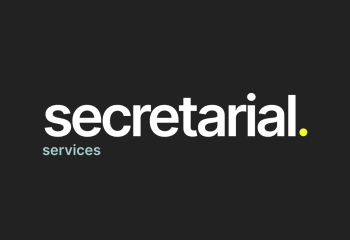
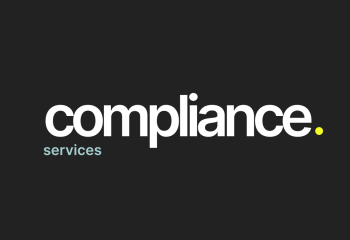


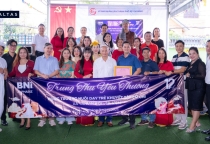
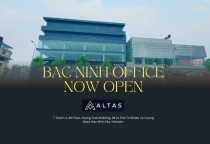

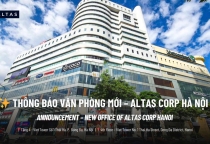


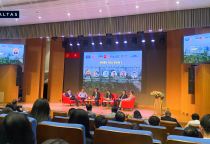

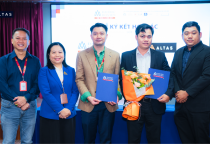


![?️ [ALTAS TALK IS COMEBACK | SERIES: “TAX MATTERS 2025”] ?️ [ALTAS TALK IS COMEBACK | SERIES: “TAX MATTERS 2025”]](thumbs/210x144x1/upload/news/altas-talkintro-7705.png)



